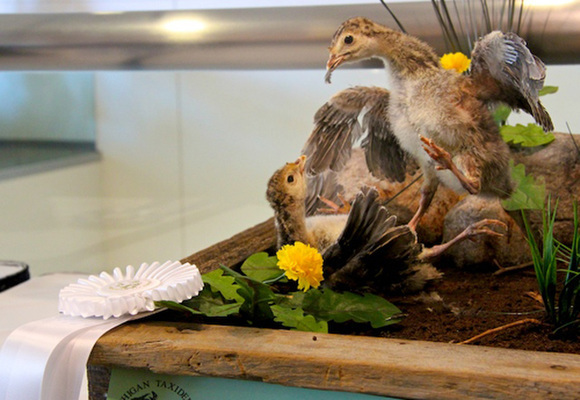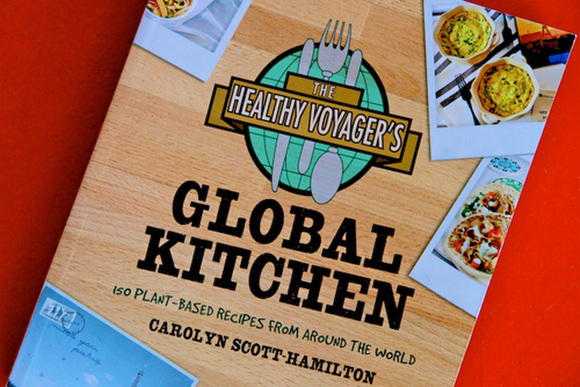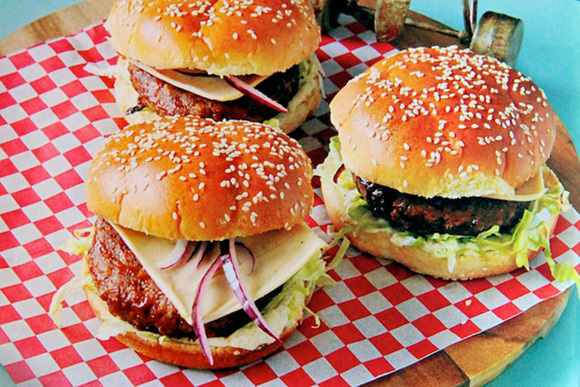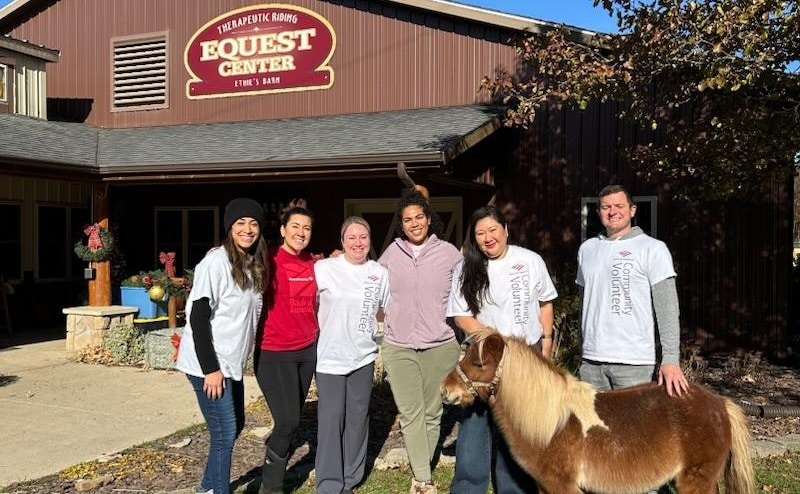G-Sync: Our Season of Love (Global Vegan Spring Mix)
What happens when we blend a new vegan global cookbook, crazy U.S. ag-gag laws and a taxidermy show with our Lifestyle Editor Tommy Allen and his friends this week? Well, buckle up for a season's worth of what's what in the G, and how this region is actually making vegans happy to be here.
When I started this editorial a few weeks ago, it began with a cookbook from a publisher. These types of requests come in often, and many times, I politely decline unless I feel a powerful connection to the material. This was one of those occasions I replied with an enthusiastic “Yes!”
Global Kitchen, by HealthyVoyager.com’s Carolyn Scott-Hamilton, is a brand-spanking-new cookbook for those seeking to explore the world of ethnic cooking with a vegan’s gentle touch.
Unlike other cookbooks, this one is packed full and neatly organized into cultural categories of food such as Latin America, Italy, Japan, Africa, Thailand and the U.S. The book is beautifully illustrated with photos, easy to understand dietary guidelines and tips for stocking your own personal global pantry in the pursuit of vegan cooking at home.
The recipes range from the simple to the you-might-want-to-pour-yourself-a-glass Shepherd’s Day-Off Pie, which will eat up a good hour and a half preparing and baking before settling down for this nap-inducing delight perfect for a weekend meal.
As with every topic that wanders a bit off my own personal life path (I am more defined as a flexitarian these days), I reached out to a few community members who have adopted a vegan diet.
What was obvious right away from WOTV 4 Women’s healthy eats expert and mother three Margaux Drake is that our diet is a personal choice we all make. We all have a role in the system we have before us. It is still in our hands.
“My husband Steve and I are vegan, but our children are given choices that they make on their own,” says Drake. “That being said, we only prepare vegan food at home. If our children want animal products, they order them when we are dining out.”
For those who find that cooking at home is neither economical nor convenient, thank God our city is responding to this cultural shift. In a recent Harris Poll, it was reported that the number of vegans doubled in 2011 to 2.5% of the population of the United States, so there is documentation that this trend is becoming a reality
“We’re not sure if anyone’s ever done an actual count, but per capita, Grand Rapids has some pretty incredible choices,” says Jon Dunn, who not only is vegan, but also started an online guide for others, VeganGR.com, with his girlfriend Kolene Allen.
I spoke to more friends, and it is clear that with the addition of Bartertown, Stella’s, Marie Catrib’s, and the area godfather of alternative restaurants, Gaia, Grand Rapids has choices. It is also a place where local restaurants not typically known for vegan practices serve up pleasant surprises on the restaurant map, like the newly opened Grove in the East Hills neighborhood.
“Grove has pulled out the food they have available as vegan onto a separate menu. So, unlike other restaurants in town, it’s all right there for you in one spot,” says Dunn. “The staff is all trained and know about dietary restrictions. Too many times, you tell a server you’re vegan and you receive a puzzling look.”
Both Dunn and Allen, who travel from time to time, are also quick to remind me that there are times when it is difficult, because the concept of vegan choices does not properly exist in other regions of the country. Also, when traveling by air, there may be a little confusion.
“I have fallen off the wagon, and because of my travel for business, it unfortunately happens often,” says Dunn. “The time I have to spend in airports can be very difficult. But the biggest thing is not to beat yourself up. I will say, the difference in how I feel when I am on the vegan diet to when I am not tells me that I should be vegan all the time.”
“I have to admit, it happened once not too long ago,” Allen says,”sitting alone on a long flight. My vegan meal arrived with a slice of chocolate cheesecake. I was leery because I seriously wondered what airline serves vegan cheesecake. So I took a bite anyway and knew right away it wasn’t vegan, but I finished the whole piece! I still feel guilty about it, which is good. Presented with the same scenario again, I’m sure I can resist!”
For people like WXMI’s Emily Richett, who has been vegan for three years, falling off the wagon is not possible since she doesn’t look at veganism as a diet, but a lifestyle.
Richett adds that part of this is because prior to adopting a vegan lifestyle, she spent time researching and reading books on the topic. “Educate yourself. Read everything you can get your hands on about the benefits of a plant-based diet,” Richett says. “Most of us do more homework before buying a car than we do about what we put into our bodies.”
It is this idea of a lifestyle that is intriguing, so I asked GVSU art professor Brett Colley, a vegan who has integrated food iconography and animal rights issues seamlessly into his art, to weigh in on the falling off the wagon scenario.
“Personally, I have no difficulty staying on the wagon, as my decision to go vegan is married to my conception of justice, and the rights of all animals to live and flourish,” says Colley. “The idea of eating meat or dairy and eggs repulses me, because those concepts are tethered tightly in my head to the slavery, suffering and slaughtering of innocents. On that scale, there is no balance. So good health is a happy byproduct of my ethical choices.”
The vegan topic is one that many of us are beginning to say influences our choices as more and more videos are surfacing, showcasing not the images of the Old MacDonald and his farm we were taught as children, but of the incredible cruelty that our industrialized meat industry has inflicted upon animals.
For Richett, this journey really began when she started to make the connection that many of us are making to our food. Is it humane? Is it how I want my money to be used in the pursuit of a meal?
“It started with making a connection between the food I eat and the animals I love, but then I started learning about the significant environmental and health impact and there was no going back,” says Richett. Her words echo what so many have been saying: “It all goes back to educating yourself and asking the questions, ‘Where does my food come from and at what cost?’ If you can find the answer to those questions, then you can decide if you are okay with it. I wasn’t. Once I realized there was a healthier, more respectful way to live that did not depend on the suffering and killing of animals, it was an easy transition.”
As we begin to adopt more humane eating practices in our country, our community has responded to catering to these needs because, frankly, it is an economic factor as well. So, it is surprising that over the past few days, a series of bills are surfacing that would create an “ag-gag” in several states. These bills would make it a serious crime for anyone entering an industrialized agricultural zone to document the cruelty being imposed on farm animals.
Legislators are serious about passing laws that would seek to suppress reporting with the passage of this ag-gag legislation. In a way, they are seeking to protect the violators who, in this case, are exercising their right to go undercover to report on what is happening behind closed doors.
Most crimes of animal abuse are committed away from the public eye. According to the American Society for the Prevention of Cruelty to Animals’ newly released poll conducted by Lake Research Partners, “71 percent of Americans support undercover investigative efforts by animal welfare organizations to expose animal abuse on industrial farms, including 54 percent who strongly support the efforts.” So much for doing the will of the people when ag-gag laws seek to place them in harm’s way, just as they have the animals they have been entrusted to raise for many’s sustenance.
The result of this most recent expose resulted in the largest recall of beef in our country’s history. The investigators brought to light practices that were repulsive to many for the inhumane treatment of animals. They also potentially saved our lives, including that most vulnerable population of children and the elderly, whose immune systems are especially vulnerable.
So, a quiet eating revolution is happening in not only our city, but in our country, too. Some will exercise this right to know about the real content and treatment of animals behind the scenes of their food choices by asking more of their elected officials. Citizens will weigh in by raising their voices to say these kinds of ag-gag laws are wrong.
But others will begin to do so by simply asking on a quieter platform, “Can you direct me to the vegan items on your menu?”
By lifting our voices, we have seen options appear as change happens not only in the kitchen, but also in the streets. If you look around, you’ll discover the results whether you find it at the grocer or on the bookshelves, or in the restaurants that line our city’s streets.
Grand Rapids, for all your advances and shortcomings, thankfully, we are at a time in our history for the first time where we have real solutions at our fingertips that impact everything from the gut to the globe — and tasty, healthy ones, too.
And don’t be afraid to go slowly on your journey. Baby steps in the right direction are easy with books like Global Kitchen, offering us rich and flavorful choices along the way. The key is to be human and, in this case, a bit more humane in our walk each day.
The Future Needs All of Us.
Tommy Allen, Lifestyle Editor
Email: RapidGSync@gmail.com
Click here to continue to this week’s G-Sync events.
Editor’s note: Tommy says, buy Global Kitchen from your local bookseller, please. Buy Local First (& Often.)
Press Releases for upcoming events in the West Michigan area should be sent to TommyRapidG@gmail.com. Please include high res jpg images that are at least 500 pixels wide.













